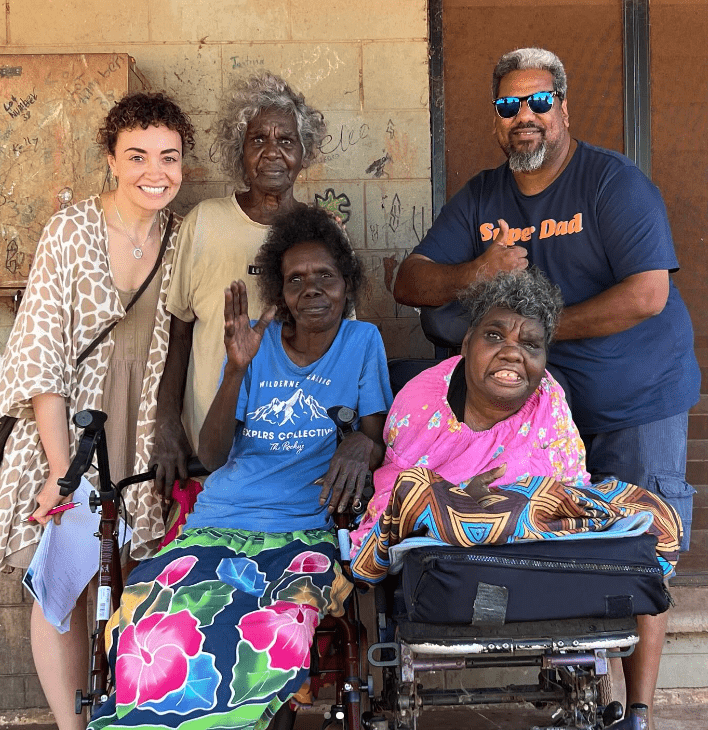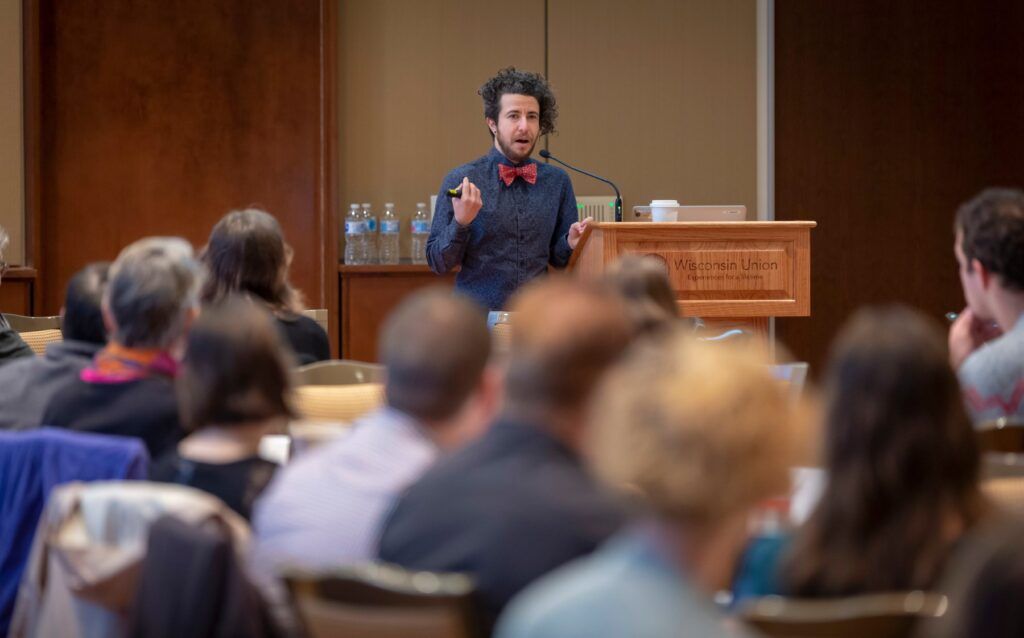The First Peoples Disability Network Australia (FPDN), a national organisation governed by Indigenous Australians with lived experience of disability, is intensifying its call for cultural inclusion in the country’s disability support services.
Representing a significant portion of Australia’s First Peoples, FPDN advocates for tailored programs that meet the unique cultural and practical needs of Aboriginal and Torres Strait Islander people with disabilities. As the statistics reveal, the need for reform is urgent.

Alarming Disability Rates Among First Peoples
The 2018-19 National Aboriginal and Torres Strait Islander Health Survey (NATSIHS) revealed a stark disparity in disability rates between Indigenous and non-Indigenous Australians.
The survey showed that about 38% of First Nations people—306,100 out of 814,000—were living with a disability, making them 1.5 times more likely to have a disability compared to non-Indigenous Australians.
The gap widens further when looking at severe or profound disabilities, which affect 8.1% (66,100) of First Nations people. Indigenous Australians are 2.5 times more likely to experience these serious conditions.
These statistics highlight the systemic inequities in Australia’s health and disability sectors. First Peoples with disabilities face unique challenges, not only from their conditions but also from compounded issues of racial discrimination, cultural marginalisation, and a lack of access to culturally appropriate services.
Community-Led Solutions in a Fractured System
A central tenet of FPDN’s advocacy is that disability programs must be community-driven. Waularna Hume, FPDN’s Training, Workforce, and Engagement Officer, emphasised that the failure of many mainstream disability service providers to consult Indigenous communities results in ineffective and alienating programs.
“A lot of community organisations and us, we do co-consultation,” Hume said. “You’ll find that a lot in Aboriginal organisations—where before a program is started or a program is even thought of – they’ll do a community consultation about what the community wants. So we tailor programs for the community, led by community.”
Without meaningful consultation, many First Peoples living with disabilities find that existing services do not reflect their specific cultural and individual needs.
This failure leaves a significant portion of the Indigenous population without access to the culturally safe services they require, perpetuating a cycle of exclusion.
Rights-Based Training Targets Systemic Discrimination
FPDN has launched its Element 5 Human Rights training, which aims to address the knowledge gap among First Nations people with disabilities.
This initiative provides participants with critical information about their rights, helping them combat discrimination and navigate the complex legal landscape they often face.
“At the moment, we’re doing Element 5 training, which is the human rights [program] with people living with disability who identify as First Nations,” said Hume.
“Our trainers go out to community groups, community events, and deliver this training—it’s more of a conversation, a discussion around their human rights. We give them a toolbelt they can use, legal stuff they can use if they’re being discriminated against, so they know their rights and they can fight that.”
The training is being rolled out across the country, from Queensland to Tasmania and even the Torres Strait Islands, reaching Indigenous communities often overlooked by mainstream services.
For many Aboriginal and Torres Strait Islander people, this training represents a vital tool in confronting the systemic discrimination they frequently encounter.
“A lot of the time people with disabilities are talked down to,” Hume explained. “So it kind of gives them a voice and something they can stand on and know their rights.”
Mainstream Organisations Failing on Cultural Competency
Despite the work being done by FPDN, there remains a significant gap in cultural competency among mainstream disability service providers. Aboriginal and Torres Strait Islander people with disabilities often find that services designed for the broader Australian population fail to accommodate their cultural practices and heritage, leaving them marginalised within the system that is supposed to support them.
“There is the Racial Discrimination Act, which we touch on as well,” Hume said. “We have our own rights and the way we do things in the community that needs to be heard by mainstream organisations that are also connecting with us because no journey is the same. No experience is the same. No person is the same, so each disability is different.”
FPDN continues to call for mainstream organisations to not only recognise but also respect Indigenous cultural protocols when providing services to First Peoples with disabilities. This, they argue, is crucial for creating an environment where Indigenous Australians can access disability services without compromising their cultural identity.
Cultural Inclusion: A Non-Negotiable Priority
The numbers from the NATSIHS survey paint a grim picture: more than one-third of First Peoples are living with disabilities, and they are more likely to experience severe or profound disabilities than non-Indigenous Australians. For FPDN, this is a clear indicator that the current disability support system is not working for First Nations communities.
FPDN insists that cultural inclusion must be non-negotiable in disability services. As Hume stated, “It’s good because Aboriginal people and Torres Strait Islander people, we have our own culture, we have our own way of doing things.”
Without meaningful cultural inclusion, Indigenous Australians with disabilities will continue to face disproportionate barriers in accessing the services they need. FPDN is calling for significant reforms, both in government policy and service delivery, to ensure that First Peoples with disabilities are not left behind in a system that should serve all Australians equally.
Systemic Challenges Ahead
While FPDN’s advocacy is having an impact, challenges remain. Many Indigenous communities, particularly in rural and remote areas, still face limited access to disability services. Furthermore, FPDN is working within a system that has long prioritised a one-size-fits-all approach, which often neglects the needs of marginalised groups.
Hume recognises that the road ahead is long, but FPDN is committed to addressing these challenges head-on. “No journey is the same. No experience is the same. No person is the same, so each disability is different,” she reiterated.
Urgent Reforms Needed
The data from the 2018-19 NATSIHS survey and the ongoing work of FPDN highlight the urgent need for reform in Australia’s disability services sector. First Peoples with disabilities are disproportionately affected by systemic discrimination, cultural alienation, and inadequate support. FPDN’s work is critical in pushing for a more inclusive, culturally competent approach, but without broader systemic change, the cycle of exclusion will continue.
FPDN’s message is clear: Australia’s disability support system must do more to meet the needs of Indigenous Australians, or it will continue to fail a significant portion of the population it is meant to serve.

